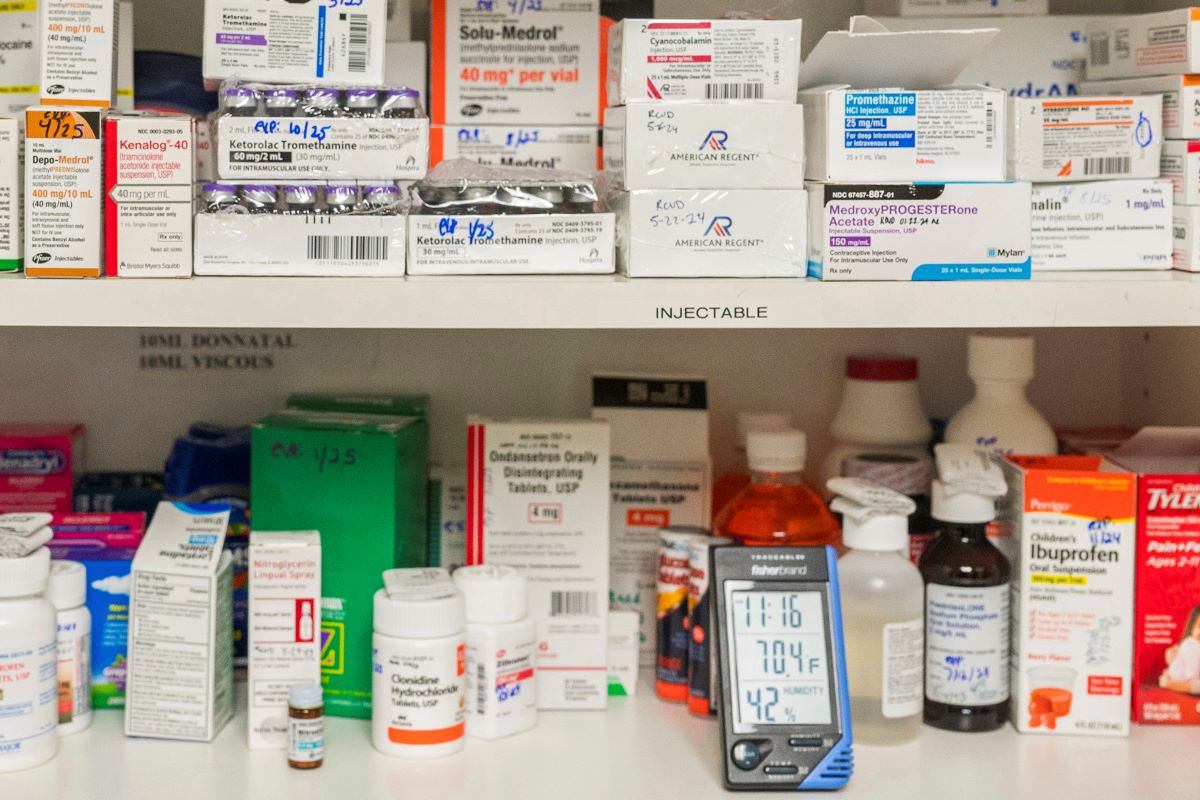Summer has arrived, bringing with it the threat of heat waves and associated heat-related illnesses. Heat waves are particularly dangerous, as they cause more fatalities than any other single weather event.
For the millions of Americans taking certain medications, there is an added risk. Some drugs can trigger severe, sometimes life-threatening reactions when combined with high temperatures.
These medications, used for treating conditions such as high blood pressure, asthma, depression, and allergies, can impair the body’s ability to handle heat when temperatures rise.
“Everyone who takes medications, whether over-the-counter or prescription, needs to consider that their medication can put them at risk once summer arrives,” says Aaron Bernstein, a pediatrician and interim director of the Harvard T.H. Chan School of Public Health’s Center for Climate, Health and the Global Environment.
Bernstein adds, “Heat waves are getting worse with climate change. We need to be mindful when medications mix with heat. Too much heat can make an otherwise safe and effective drug dangerous.”
Certain medications, like diuretics, cause the body to lose water, potentially leading to dehydration in hot weather.
Others, such as beta blockers or ACE inhibitors, lower blood pressure, increasing the risk of fainting in the heat.
Selective serotonin reuptake inhibitors (SSRIs), commonly used antidepressants like Prozac, can lead to increased sweating, which also contributes to dehydration.
Some drugs, such as the over-the-counter allergy medication Benadryl, Cogentin for Parkinson’s disease, and Spiriva for asthma, can reduce sweating, the body’s natural cooling mechanism.
This can result in overheating and heat stroke. Additionally, antipsychotics can impair the brain’s ability to regulate body temperature.
To protect yourself, follow general heat safety recommendations. This includes monitoring weather forecasts and, if exercising outdoors, doing so early in the morning or late in the evening.
“If you have to be outside during the peak heat of the day, try to stay in the shade and drink fluids,” Bernstein advises.
Seek medical help if you stop sweating or start feeling unusually tired or drowsy, as these are signs of heat exhaustion or heat stroke.
“For many people on medications, working outside may not be a choice,” Bernstein notes. “If you know you have to be outside, make sure your doctor is aware that your job requires you to be exposed to the elements.
The dosage of your medication might need to be adjusted based on this exposure, either in terms of quantity or timing.”
Be particularly cautious if you start a new medication during the summer, as the risk of heat-related reactions is higher when the body is unaccustomed to a new drug.
“Most importantly, don’t stop any of your medications just because it’s hot,” Bernstein stresses. “If you’re prescribed a medication, it’s for a good reason and discontinuing it is not advised.”

Normal body temperature is around 97.9 degrees Fahrenheit, though it can vary. When the body’s heat-regulating mechanisms fail, body temperature can rise quickly, sometimes to 103 degrees or higher, which is dangerous.
“We regulate our body temperature by balancing heat production and loss,” explains Ying Zhang, a senior lecturer at the University of Sydney’s School of Public Health.
“When the outdoor temperature exceeds the skin temperature, our only method of heat loss is evaporation through sweating.
Factors that impede this process, such as high humidity, reduced cardiac output, diminished airflow, or certain medications, can cause body temperature to rise, potentially leading to life-threatening heatstroke.”
Few studies have investigated the dangerous interactions between drugs and heat, and experts agree that more research is needed.
“Due to the lack of research, it’s impossible to estimate the scale of the problem,” Zhang says.
“However, it is certain that climate change will exacerbate health issues related to medications. Older individuals, who often take multiple medications, will be especially vulnerable.”
Bernstein concurs on the need for further research. “We would be able to offer more precise adjustments and advice if we invested more time and resources into understanding this issue,” he says.
Patients should also be cautious about storing their medications, as heat exposure could affect their efficacy. Many drug labels provide storage instructions, but this may not help those who need to carry their medications—such as asthma inhalers—with them at all times.
“I’d be surprised if any medication remained completely stable when exposed to extreme heat,” Bernstein says.
“At the same time, it’s unclear how much heat affects medication stability. We don’t know enough about how keeping a medication in a purse outside on a hot day might degrade it.”
As heat waves become more frequent and prolonged, it is also crucial for physicians and health professionals to become more aware of these issues.
“Medical schools don’t teach doctors about these risks, partly because they are new,” Bernstein points out.
“Climate change has brought unprecedented heat, and people are experiencing conditions unlike any in our history. In the past, we didn’t have to worry about medications and heat during the summer. But now, we do.”
